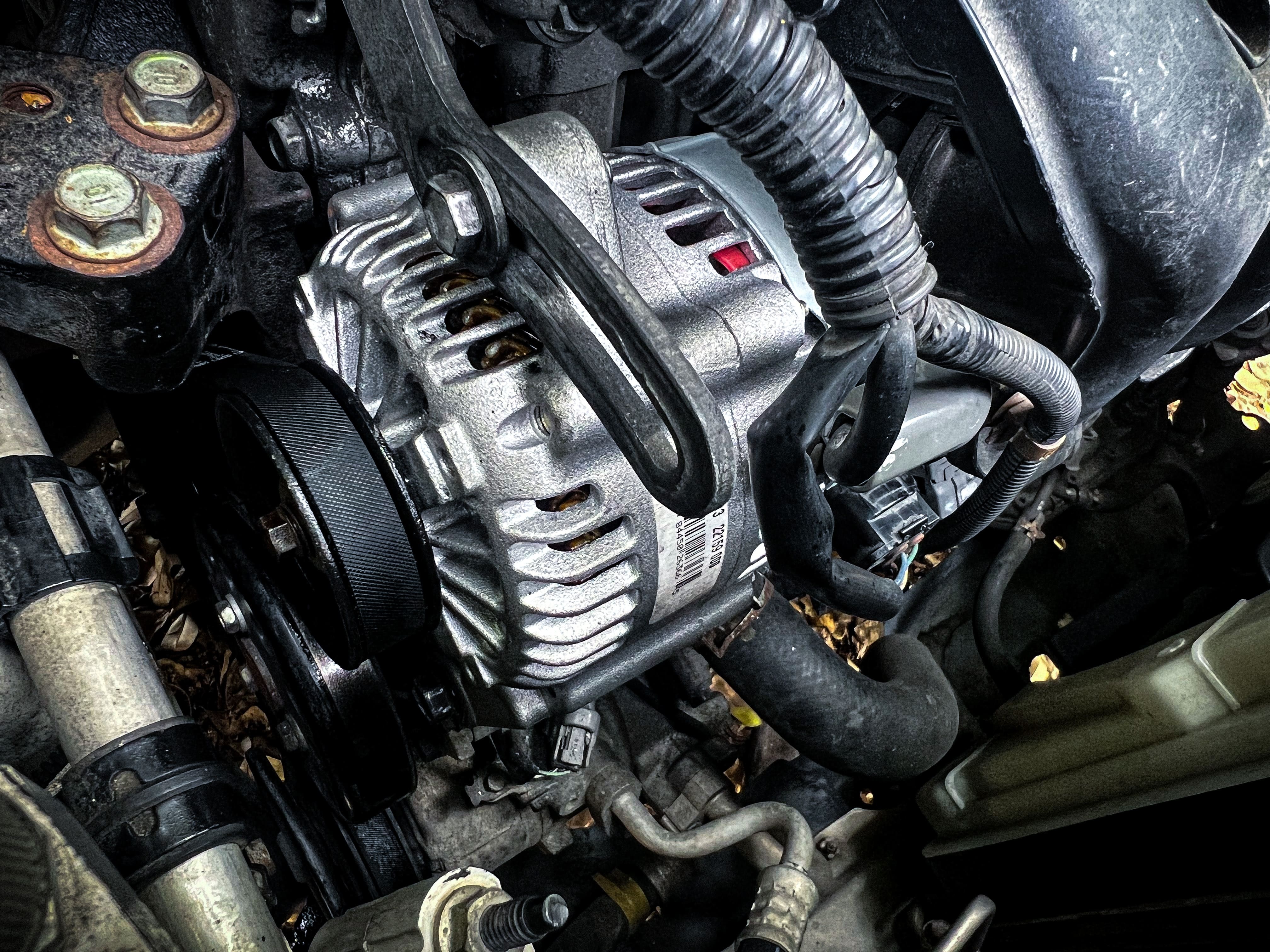As an Amazon Associate, I earn from qualifying purchases at no extra cost to you.
Honda Accord Won’T Start But Lights Come On: Troubleshooting Tips
The Honda Accord not starting but lights coming on could indicate a problem with the ignition switch or starter motor. We will explore common causes and troubleshooting steps to resolve this issue.
Whether you’re experiencing this problem with your Honda Accord or simply want to learn more about car maintenance, this guide will provide you with valuable insights and actionable solutions. It is frustrating to encounter a situation where your car won’t start despite the lights turning on, but with our help, you’ll be able to diagnose and resolve the issue efficiently.
Read on to find out more.
Common Reasons For Honda Accord Not Starting
There are several common reasons why your Honda Accord won’t start but the lights come on. It could be due to a dead battery, faulty ignition switch, fuel delivery issues, or a malfunctioning starter motor.
Experiencing a situation where your Honda Accord won’t start can be frustrating and leave you feeling stranded. However, there are a few common reasons why your car may be failing to start. In this section, we will discuss three potential culprits: a dead battery, a faulty starter motor, and ignition switch issues. Understanding these causes can help you diagnose the problem and find the suitable solution.
Dead Battery
A dead battery is one of the most common reasons why your Honda Accord may not start. The battery powers essential components of your car, including the starter motor and ignition system. If the battery is drained or fully discharged, it may not have enough power to turn the engine over. This can occur due to extended periods of inactivity, leaving your lights on, or an aging battery that needs to be replaced.
To determine if a dead battery is the cause of your Accord not starting, you can perform a simple test:
- Check if the headlights, dashboard lights, or interior lights are functioning properly. If they appear dim or don’t illuminate at all, the battery is likely the culprit.
- Try jump-starting your Accord using jumper cables and a vehicle with a live battery. This can revive a drained battery temporarily.
- If jump-starting is unsuccessful or the battery drains again shortly after, it is a sign that a replacement is necessary.
Faulty Starter Motor
The starter motor is responsible for cranking the engine and initiating the combustion process. A faulty starter motor can prevent your Honda Accord from starting altogether. This issue often manifests as a clicking sound when you turn the key in the ignition, but the engine does not engage. Over time, the motor’s internal components can wear out, leading to this malfunction.
If you suspect a faulty starter motor, there are a few signs to look out for:
- When you turn the key, you hear a clicking noise but the engine does not start.
- The engine cranks very slowly or struggles to turn over.
- You have checked the battery and it is functioning correctly.
Ignition Switch Issues
The ignition switch is an integral part of your Honda Accord’s starting system. It allows you to engage the starter motor and power various electrical components. If there are issues with the ignition switch, it can prevent your car from starting. This may be due to a faulty electrical connection or worn-out internal components. Ignition switch problems can sometimes be difficult to diagnose, as they can exhibit various symptoms.
If you suspect an ignition switch issue, look out for the following indicators:
- The engine cranks but doesn’t start or stalls immediately after starting.
- You experience intermittent starting problems or difficulty turning the key in the ignition.
- Other electrical components, such as the radio or lights, are not functioning properly.
Understanding the common reasons for your Honda Accord not starting, such as a dead battery, faulty starter motor, or ignition switch issues, can help you identify and resolve the problem. Remember to consult a professional mechanic if you are unsure or need assistance with repairs. Stay tuned for our next section, where we will provide potential solutions for these issues.

Credit: shop.advanceautoparts.com
Checking The Battery
The battery is the heart of your Honda Accord’s electrical system. If your Honda Accord won’t start but the lights come on, it’s likely a battery-related issue. Checking the battery should be your first step in troubleshooting this problem. Here are two important things to consider when inspecting the battery:
Inspecting Battery Connections
Start by visually inspecting the battery connections. Check if the battery terminals are clean and free from corrosion. Corrosion can prevent proper electrical contact and affect the battery’s performance. If you notice any buildup of white or greenish deposits on the terminals, it’s an indication that the battery needs cleaning. Follow these steps to clean the battery connections:
- Disconnect the negative (-) terminal first, followed by the positive (+) terminal. This sequence is important for safety reasons.
- Use a wire brush or battery cleaner to scrub away any corrosion from the terminals.
- Rinse the terminals with a mixture of baking soda and water to neutralize any remaining acid.
- Dry the terminals thoroughly before reconnecting them. You can use a clean cloth or a compressed air canister for this purpose.
- Once the terminals are clean and dry, reconnect the positive (+) terminal first, followed by the negative (-) terminal.
Testing Battery Voltage
After inspecting the battery connections, the next step is to test the battery voltage. This will give you an idea of the battery’s health and whether it has enough charge to start the engine. Here’s how to test the battery voltage:
- Turn off all electrical accessories in your Honda Accord, including the lights and radio.
- Connect a multimeter to the battery terminals. Make sure the positive (+) lead is connected to the positive (+) terminal, and the negative (-) lead is connected to the negative (-) terminal.
- Set the multimeter to the DC voltage setting and ensure it’s within the appropriate range for automotive batteries.
- Read the voltage displayed on the multimeter. A fully charged battery should read around 12.6 volts or higher. If the reading is significantly lower, it may indicate a weak or discharged battery.
If the battery connections are clean and the battery voltage is within the normal range, there may be other factors contributing to your Honda Accord not starting. In such cases, it’s best to consult a qualified mechanic for further diagnosis and repair.
Examining The Starter Motor
When experiencing issues with a Honda Accord that won’t start but has its lights coming on, it’s crucial to methodically assess the potential causes. One area of focus should be the starter motor, a component essential for initiating the vehicle’s engine. Examining the starter motor can help identify if it’s the root of the problem.
Listening For Clicking Sounds
One way to potentially determine if the starter motor is the culprit is by listening for clicking sounds when attempting to start the vehicle. When the key is turned in the ignition and the lights come on, but there’s a distinct clicking noise when the engine is being started, it could signify that the starter motor is struggling to engage.
Testing The Starter Motor
To further analyze the starter motor, an evaluation should be conducted to test its functionality. This involves checking the electrical connections and conducting a load test. If the electrical connections are loose or corroded, it can hinder the starter motor’s operation. Performing a load test can provide insights into whether the starter motor is drawing the appropriate amount of current to initiate the engine.

Credit: m.youtube.com
Assessing The Ignition Switch
If your Honda Accord won’t start but the lights come on, it could be due to a faulty ignition switch. Assessing the ignition switch is crucial in diagnosing the issue. You can check for loose connections or signs of wear and tear to determine if the switch needs to be replaced.
Checking For Loose Connections
Loose connections can prevent the ignition from receiving the necessary power to start the Honda Accord. Check all electrical connections for any signs of looseness or corrosion.
- Inspect the battery terminals for tightness.
- Examine the starter solenoid connections for any looseness.
- Ensure the ignition switch wiring is securely attached.
If you notice any loose connections, tighten them immediately to see if it resolves the issue of the Honda Accord not starting.
Testing The Ignition Switch
To test the ignition switch of your Honda Accord:
- Locate the ignition switch, usually on the steering column.
- Use a multimeter to check for continuity while turning the key.
- If there is no continuity or inconsistency, the ignition switch may be faulty.
Consider replacing the ignition switch if the testing reveals it as the culprit for the starting problem. This step can help resolve the issue effectively.
Additional Troubleshooting Steps
If your Honda Accord won’t start despite the lights coming on, there are a few additional troubleshooting steps you can take to identify and resolve the issue. In this section, we will explore further steps to help you diagnose the problem effectively.
Examining Fuel System
1. Check fuel levels in the tank to ensure there is an adequate supply for the engine.
2. Inspect the fuel pump for any signs of damage or failure.
3. Look for leaks in the fuel lines that may be causing a loss of pressure.
Inspecting Fuses And Relays
1. Locate the fuse box in your Honda Accord and inspect the fuses for any signs of damage.
2. Test the fuses with a multimeter to determine if they are functioning properly.
3. Check the relays in the fuse box to ensure they are securely connected and working correctly.
By following these additional troubleshooting steps, you can pinpoint the issue with your Honda Accord that is preventing it from starting despite the lights coming on. Taking a systematic approach to diagnosing the problem will help you resolve the issue efficiently.
Seeking Professional Help
If your Honda Accord won’t start but the lights come on, it can be an extremely frustrating situation. In such cases, seeking professional help is crucial to diagnose and resolve the issue. Let’s explore the steps you should take when faced with this problem.
Consulting A Mechanic
When dealing with a situation where the Honda Accord won’t start despite the lights being functional, consulting a qualified mechanic is essential. A mechanic will have the expertise and diagnostic tools to pinpoint the root cause of the problem. They can perform a thorough assessment and identify whether the issue is related to the battery, starter, or other electrical components.
Towing The Vehicle
If the Honda Accord fails to start and shows no signs of improvement after simple troubleshooting steps, towing the vehicle to a trusted automotive repair facility is necessary. Attempting to drive a vehicle that refuses to start can potentially cause further damage or safety hazards. Professional towing services can transport your car to the mechanic’s shop safely and efficiently.

Credit: www.wikihow.com
Conclusion
Dealing with a Honda Accord that won't start despite the lights coming on can be frustrating. However, understanding the common reasons and troubleshooting steps can help identify the issue. It’s crucial to take the necessary steps or seek professional assistance to resolve the problem and get your vehicle back on the road.





